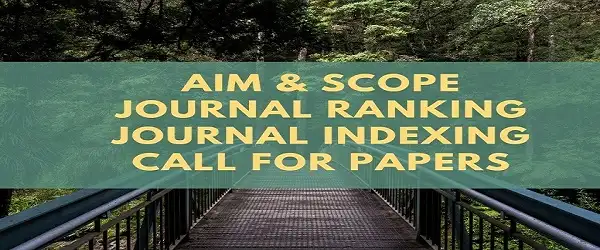Creativity Research Journal impact factor, indexing, ranking (2024)

Aim and Scope
The Creativity Research Journal is a research journal that publishes research related to Arts and Humanities; Psychology. This journal is published by the Routledge. The ISSN of this journal is 15326934, 10400419. Based on the Scopus data, the SCImago Journal Rank (SJR) of creativity research journal is 0.607.
Also, please check the following important details about creativity research journal: Publisher, ISSN, Ranking, Indexing, Impact Factor (if applicable), Publication fee (APC), Review Time, and Acceptance Rate.
According to Clarivate's JCR, journals indexed in SCIE/SSCI have an impact factor.
Creativity Research Journal Ranking
The Impact Factor of Creativity Research Journal is 2.032.
The impact factor (IF) is a measure of the frequency with which the average article in a journal has been cited in a particular year. It is used to measure the importance or rank of a journal by calculating the times its articles are cited.
The impact factor was devised by Eugene Garfield, the founder of the Institute for Scientific Information (ISI) in Philadelphia. Impact factors began to be calculated yearly starting from 1975 for journals listed in the Journal Citation Reports (JCR). ISI was acquired by Thomson Scientific & Healthcare in 1992, and became known as Thomson ISI. In 2018, Thomson-Reuters spun off and sold ISI to Onex Corporation and Baring Private Equity Asia. They founded a new corporation, Clarivate, which is now the publisher of the JCR.
Important Metrics
| Journal Title: | Creativity Research Journal |
| Publisher: | Routledge |
| ISSN: | 15326934, 10400419 |
| Type: | journal |
| Journal Scope: | Arts and Humanities; Psychology |
| Country: | United States |
| H-Index: | 94 |
| SJR: | 0.607 |
| Quartile: | Visual Arts and Performing Arts (Q1); Developmental and Educational Psychology (Q2); Psychology (miscellaneous) (Q2) |
creativity research journal Indexing
The creativity research journal is indexed in:
An indexed journal means that the journal has gone through and passed a review process of certain requirements done by a journal indexer.
The Web of Science Core Collection includes the Science Citation Index Expanded (SCIE), Social Sciences Citation Index (SSCI), Arts & Humanities Citation Index (AHCI), and Emerging Sources Citation Index (ESCI).
Creativity Research Journal Impact Factor 2024
The latest impact factor of creativity research journal is 2.032.
The impact factor (IF) is a measure of the frequency with which the average article in a journal has been cited in a particular year. It is used to measure the importance or rank of a journal by calculating the times it's articles are cited.
Note: Every year, The Clarivate releases the Journal Citation Report (JCR). The JCR provides information about academic journals including impact factor. The latest JCR was released in June, 2023. The JCR 2024 will be released in the June 2024.
Creativity Research Journal Quartile
The latest Quartile of creativity research journal is Q1.
Each subject category of journals is divided into four quartiles: Q1, Q2, Q3, Q4. Q1 is occupied by the top 25% of journals in the list; Q2 is occupied by journals in the 25 to 50% group; Q3 is occupied by journals in the 50 to 75% group and Q4 is occupied by journals in the 75 to 100% group.
Call for Papers
Visit to the official website of the journal/ conference to check the details about call for papers.
How to publish in Creativity Research Journal?
If your research is related to Arts and Humanities; Psychology, then visit the official website of creativity research journal and send your manuscript.
Tips for publishing in Creativity Research Journal:
- Selection of research problem.
- Presenting a solution.
- Designing the paper.
- Make your manuscript publication worthy.
- Write an effective results section.
- Mind your references.
Acceptance Rate
Acceptance rate is the ratio of the number of articles submitted to the number of articles published. Researchers can check the acceptance rate on the journal website. Alternatively, they can contact the editor of the journal.Journal Publication Time
The publication time may vary depending on factors such as the complexity of the research and the current workload of the editorial team. Journals typically request reviewers to submit their reviews within 3-4 weeks. However, some journals lack mechanisms to enforce this deadline, making it difficult to predict the duration of the peer review process.
The review time also depends upon the quality of the research paper.
Final Summary
- The impact factor of creativity research journal is 2.032.
- The creativity research journal is a reputed research journal.
- It is published by Routledge.
- The journal is indexed in UGC CARE, Scopus, SSCI.
- The (SJR) SCImago Journal Rank is 0.607.
Sources: creativity research journal
SIMILIAR JOURNALS
ISSN: 2578-8086
Publisher: EDUCATIONAL PUBLISHING FOUNDATION-AMERICAN PSYCHOLOGICAL ASSOC
JOURNAL OF PEDIATRIC NEUROPSYCHOLOGY
ISSN: 2199-2681Publisher: SPRINGERNATURE
JOURNAL OF EDUCATIONAL MEASUREMENT
ISSN: 0022-0655Publisher: WILEY
ISSN: 0305-7356
Publisher: SAGE PUBLICATIONS INC
ZEITSCHRIFT FUR PSYCHOSOMATISCHE MEDIZIN UND PSYCHOTHERAPIE
ISSN: 1438-3608Publisher: VANDENHOECK & RUPRECHT GMBH & CO KG
ISSN: 2662-2041
Publisher: SPRINGERNATURE
ISSN: 0066-5126
Publisher: UNIV BARCELONA, FAC PSICOLOGIA
ISSN: 2398-063X
Publisher: CAMBRIDGE UNIV PRESS
CLINICAL PRACTICE IN PEDIATRIC PSYCHOLOGY
ISSN: 2169-4826Publisher: EDUCATIONAL PUBLISHING FOUNDATION-AMERICAN PSYCHOLOGICAL ASSOC
COMPUTERS IN HUMAN BEHAVIOR REPORTS
ISSN: 2451-9588Publisher: ELSEVIER
TOP RESEARCH JOURNALS
- Agricultural & Biological Sciences
- Arts & Humanities
- Business, Management and Accounting
- Chemistry
- Computer Science
- Education
- Engineering
- Mathematics
- Medicine
- Physics
- Social Sciences